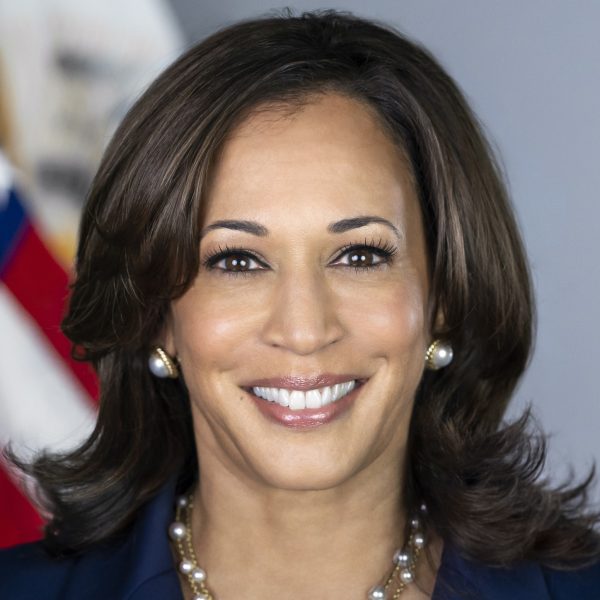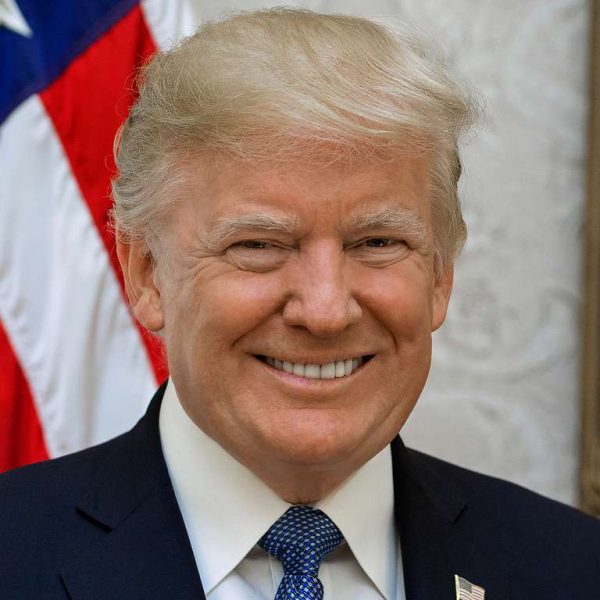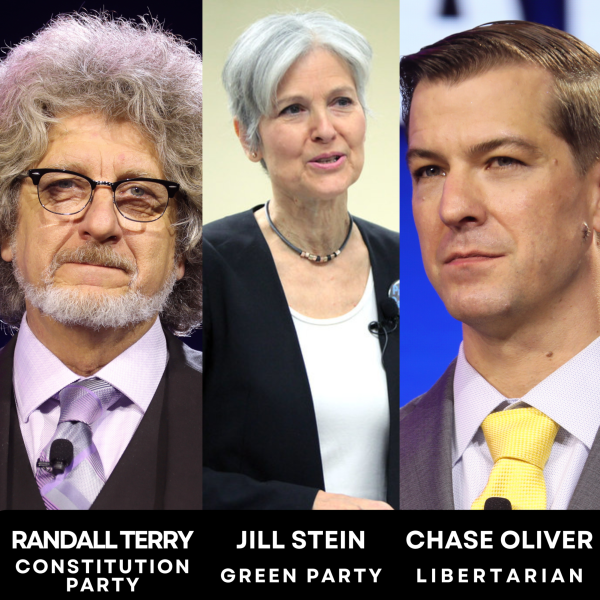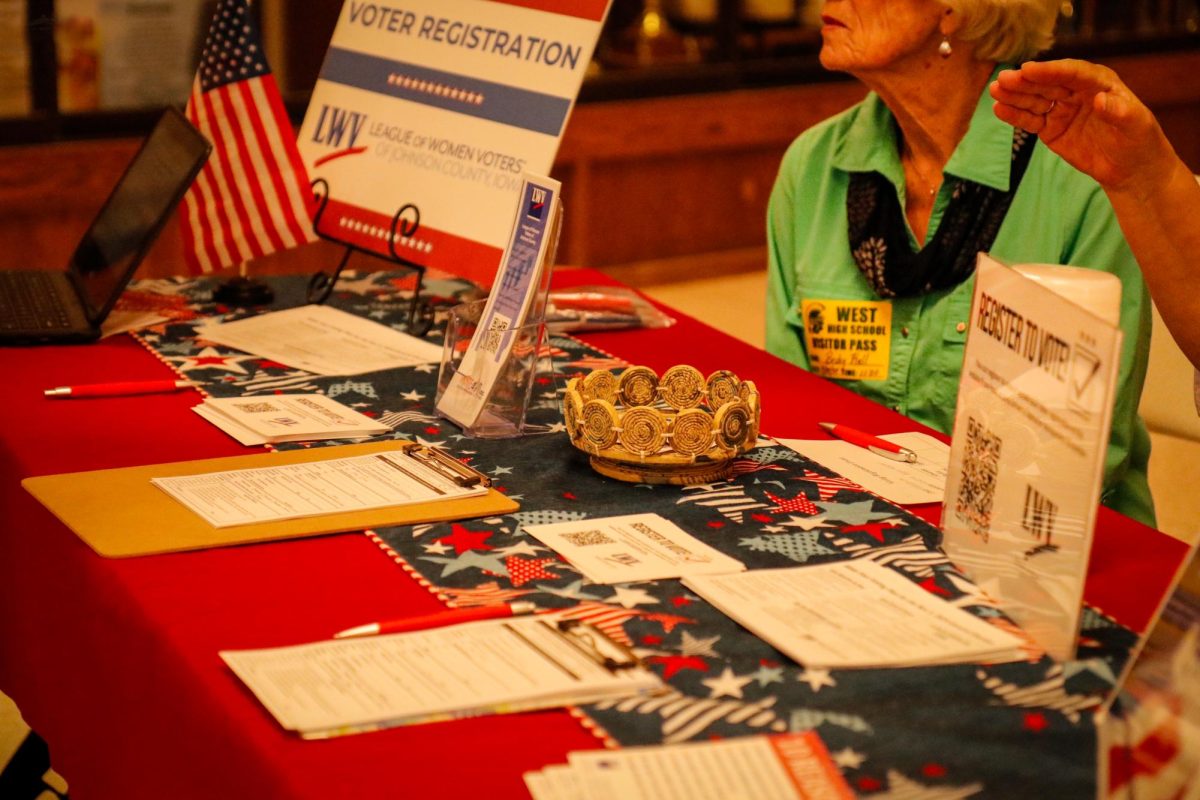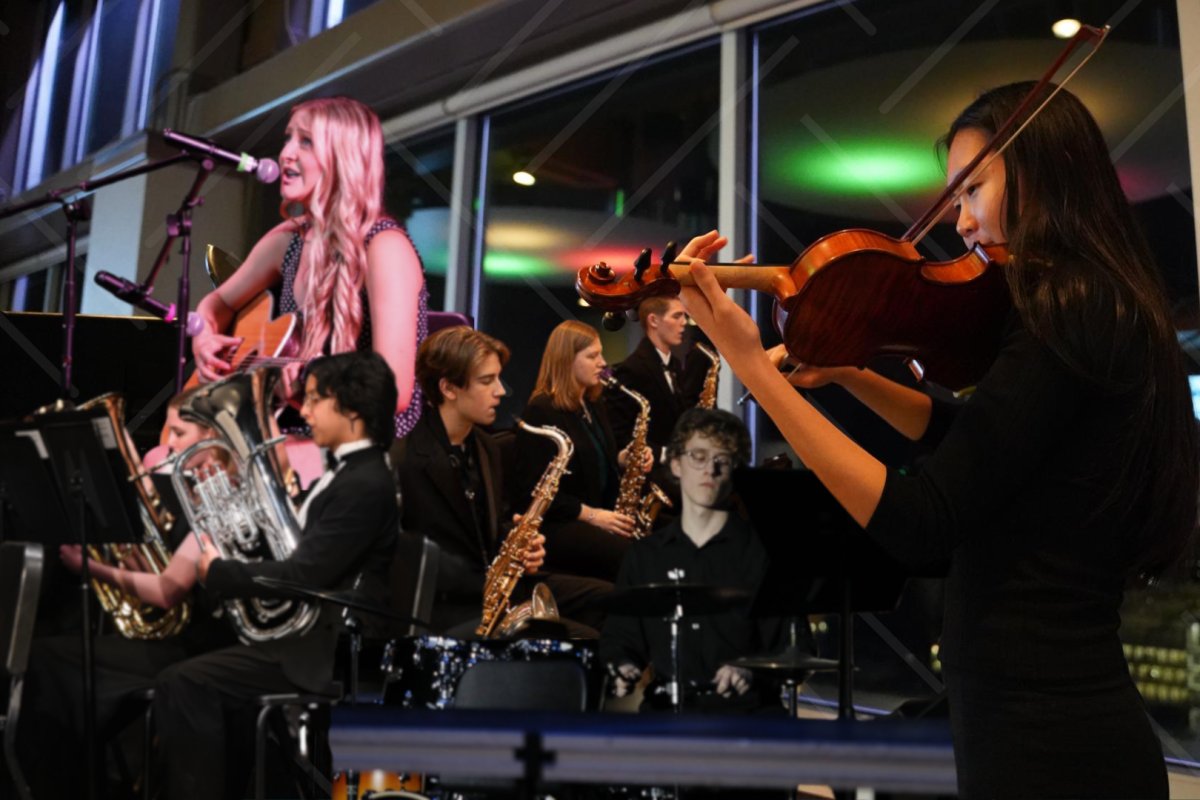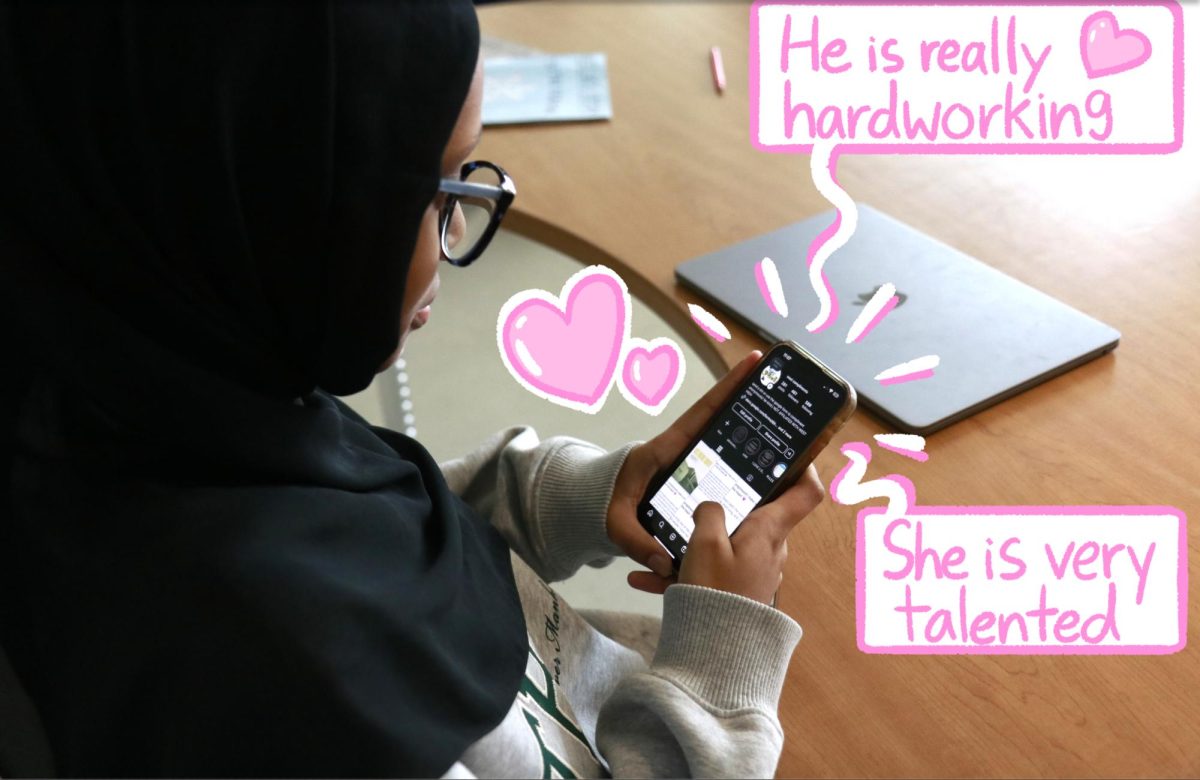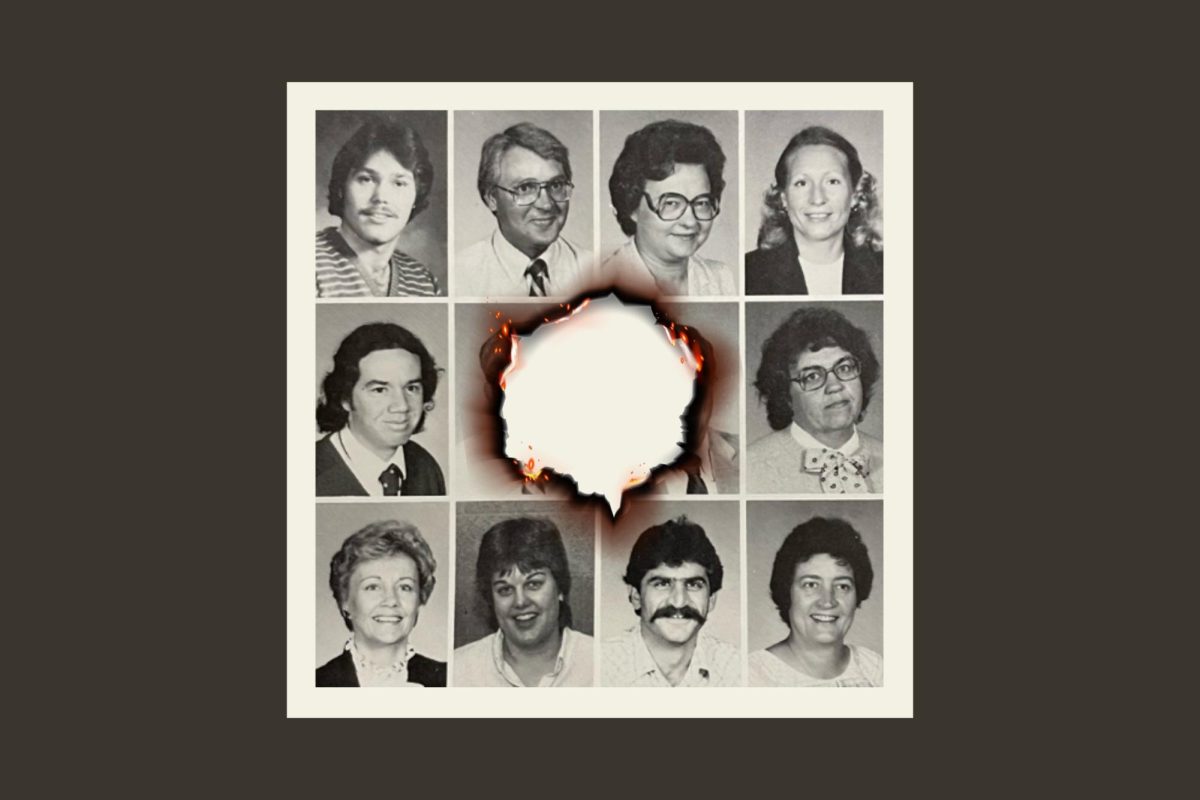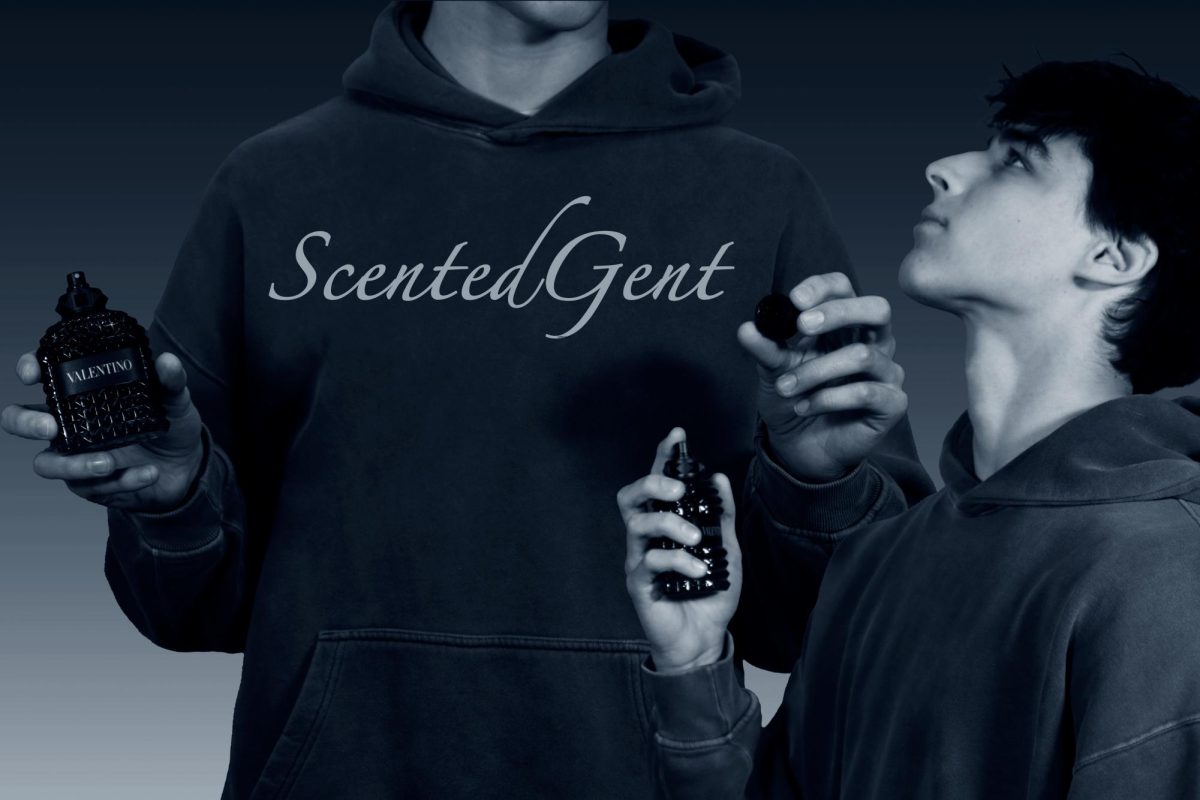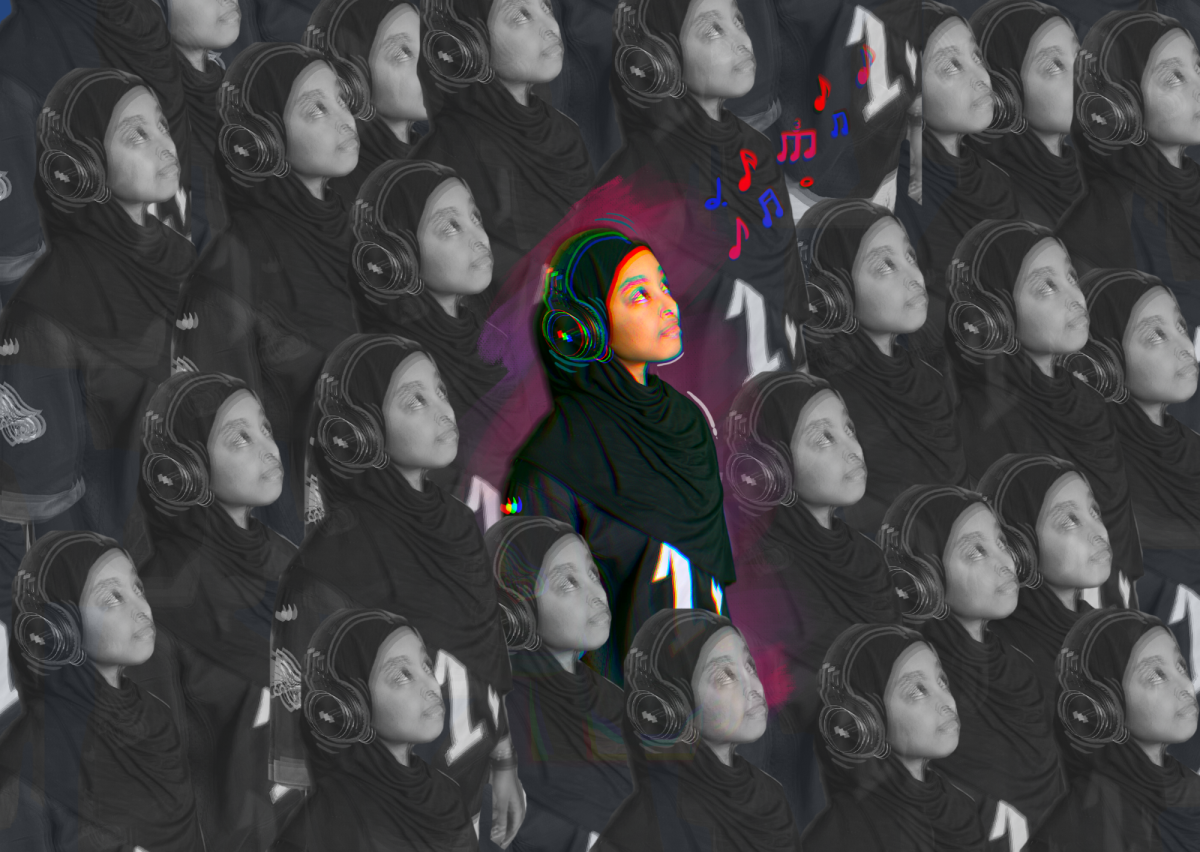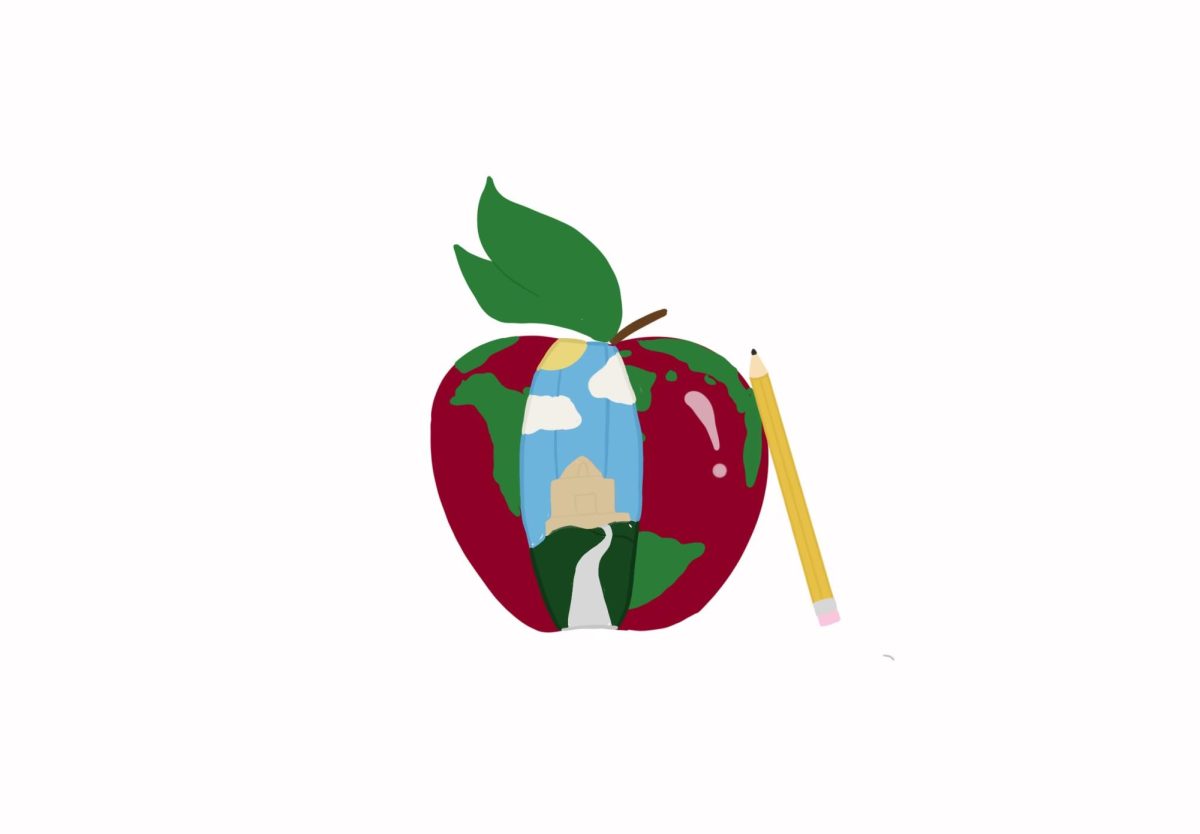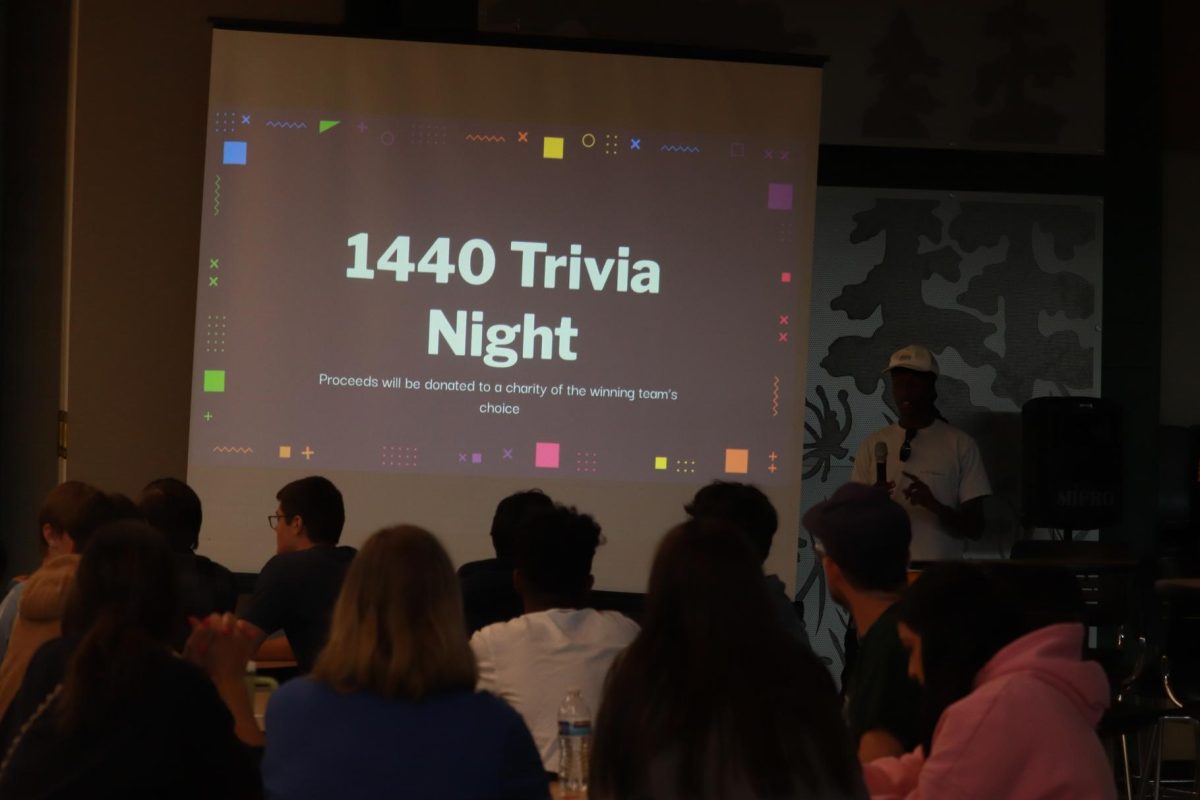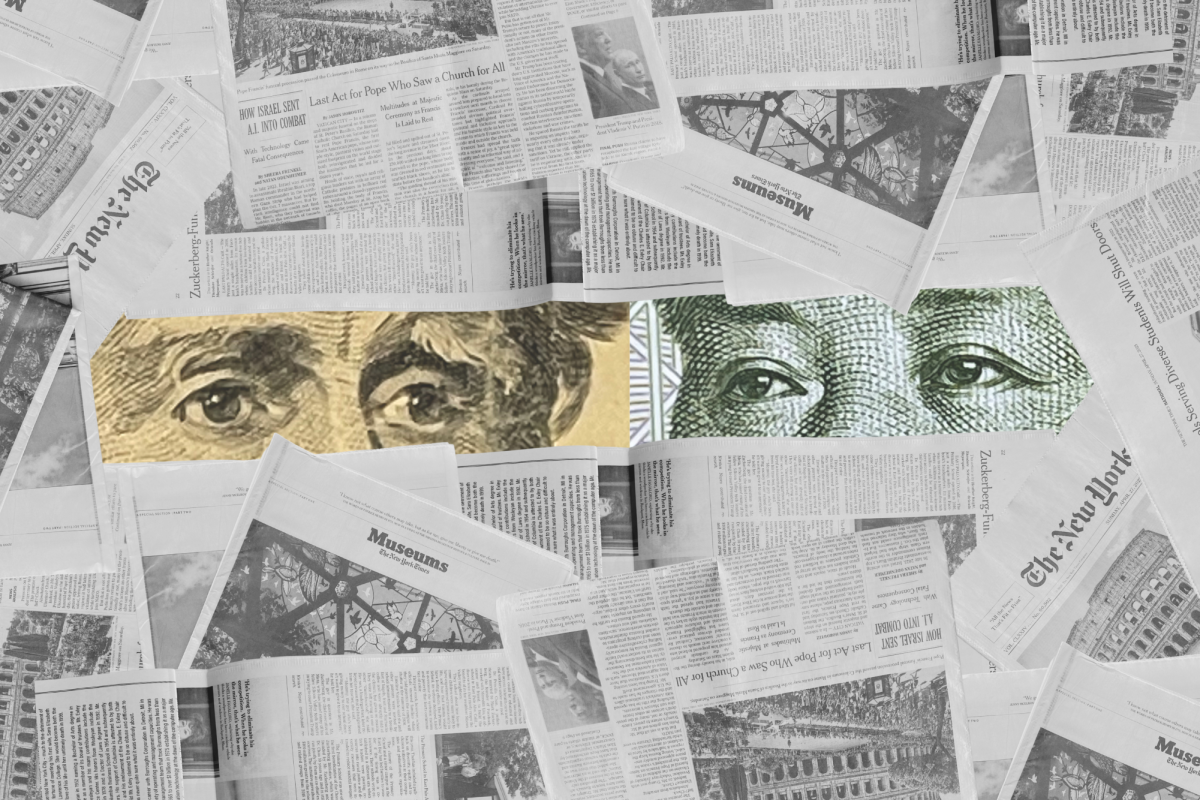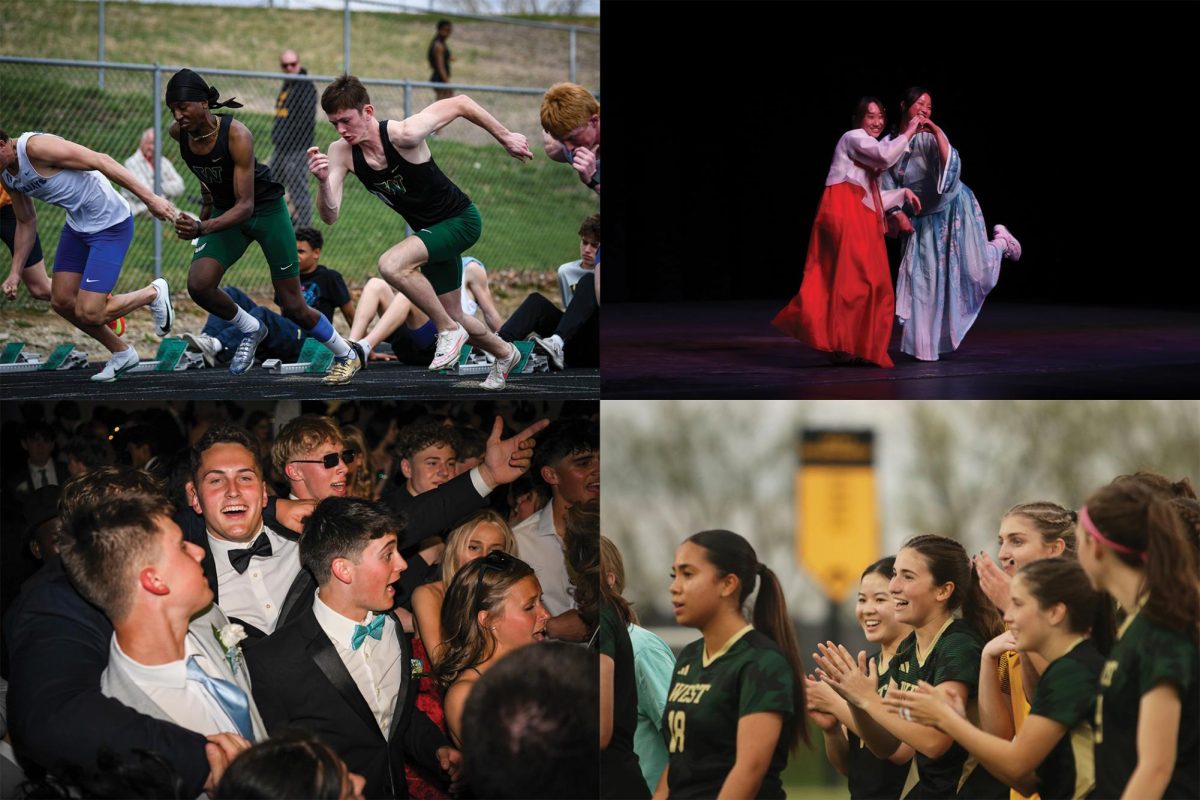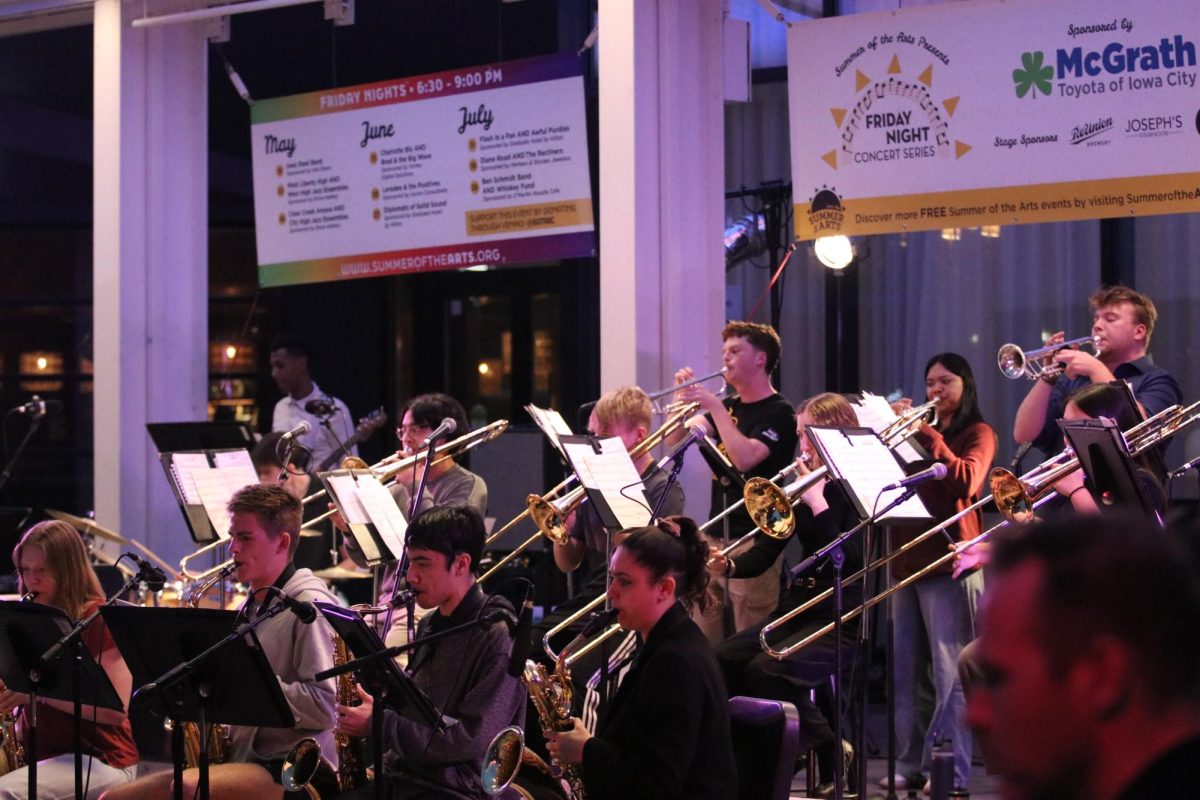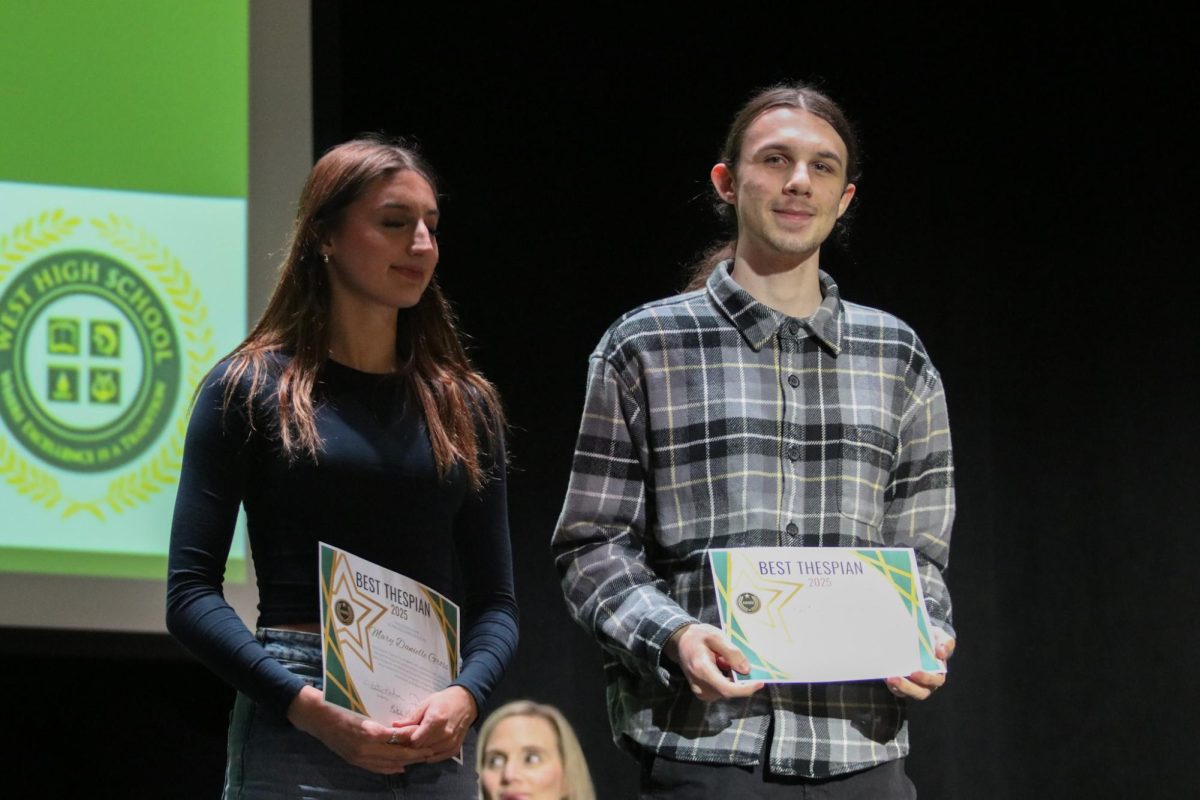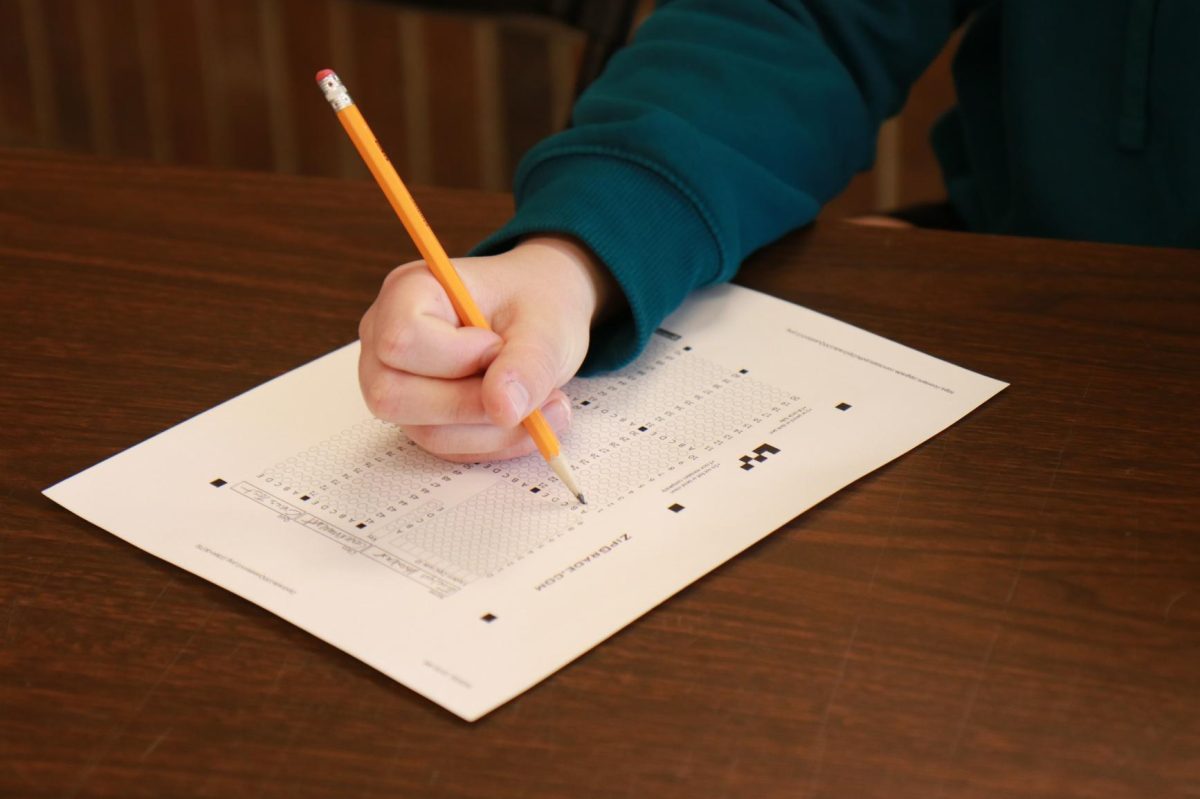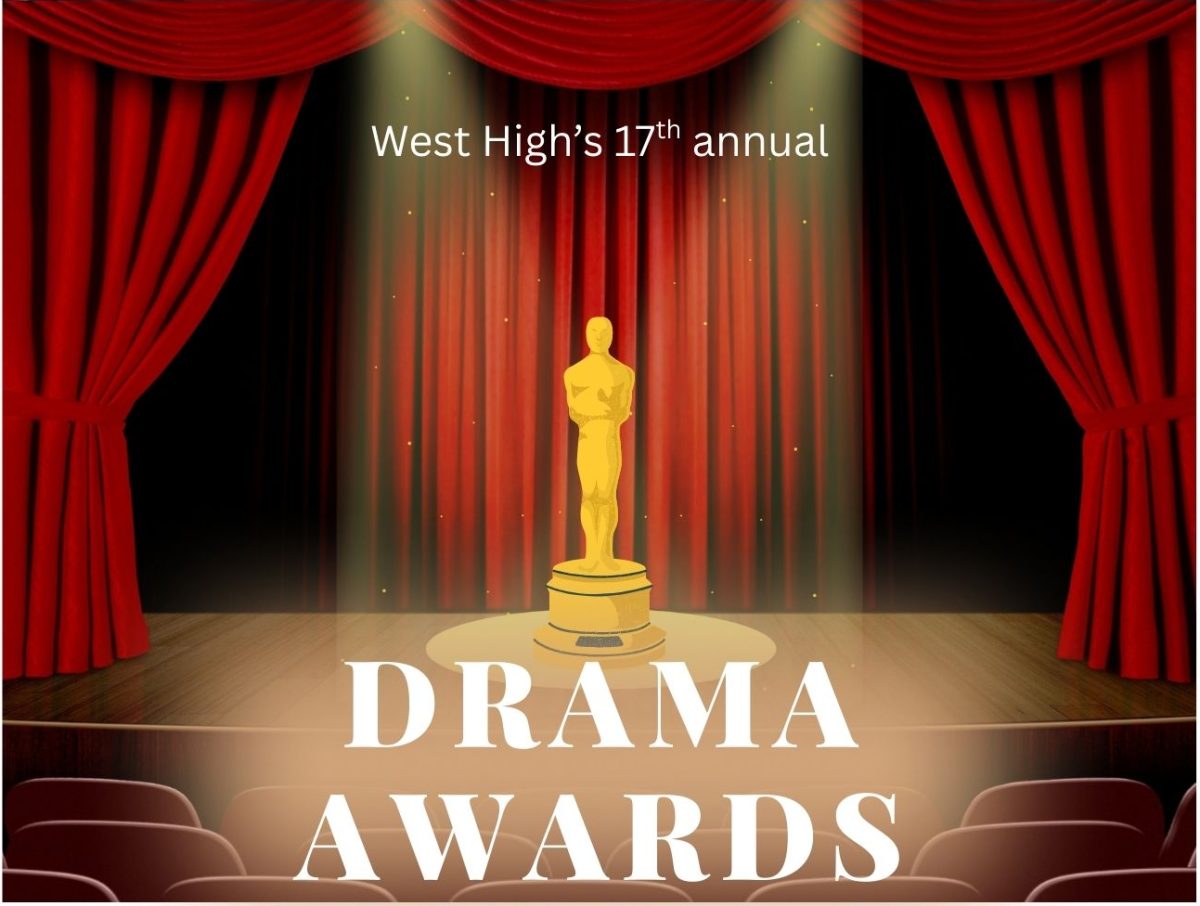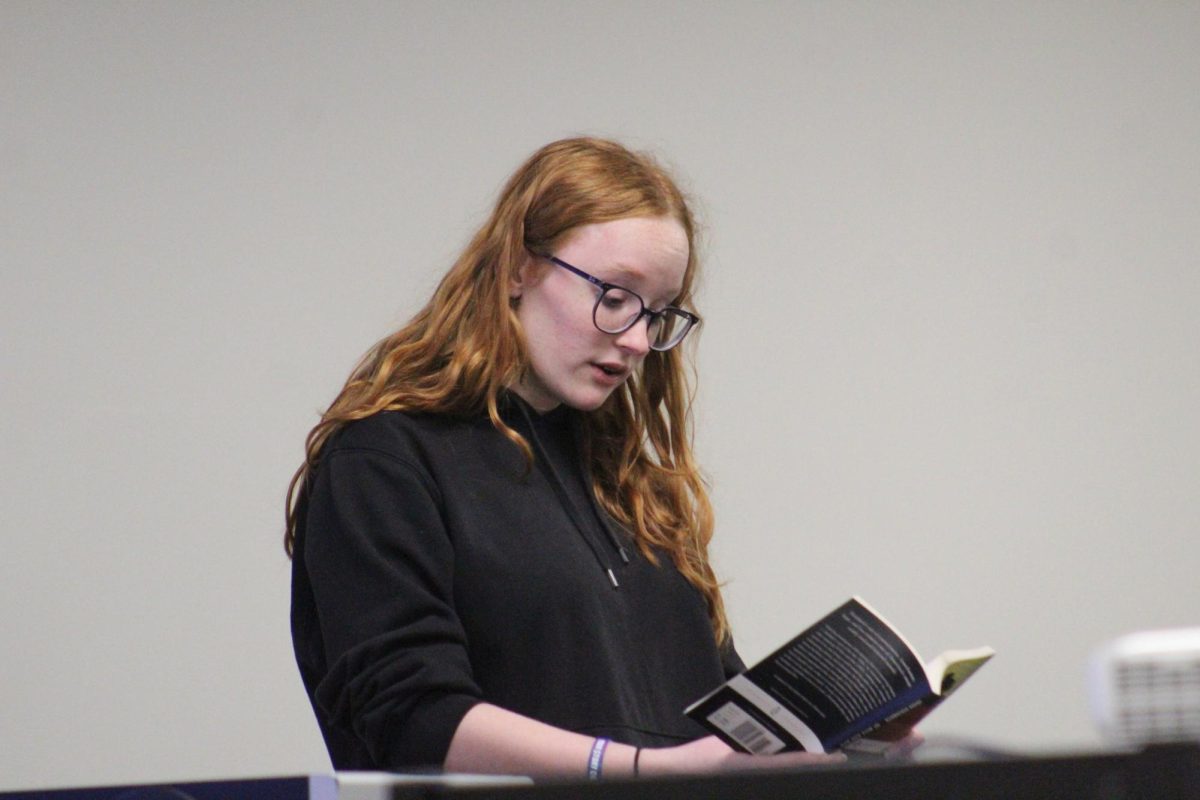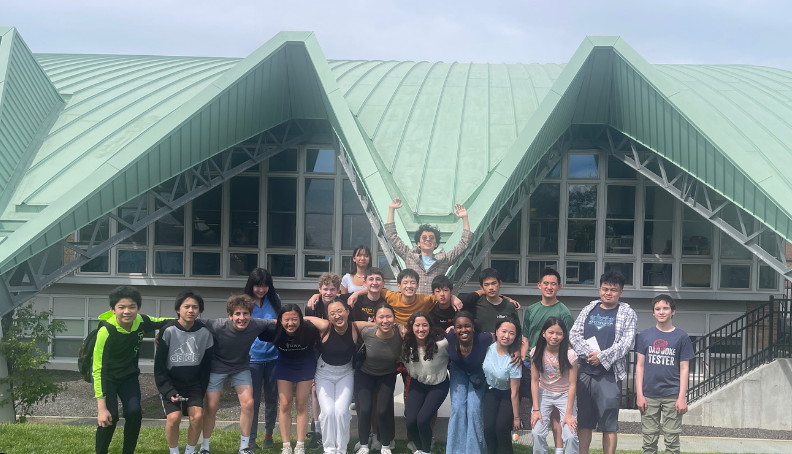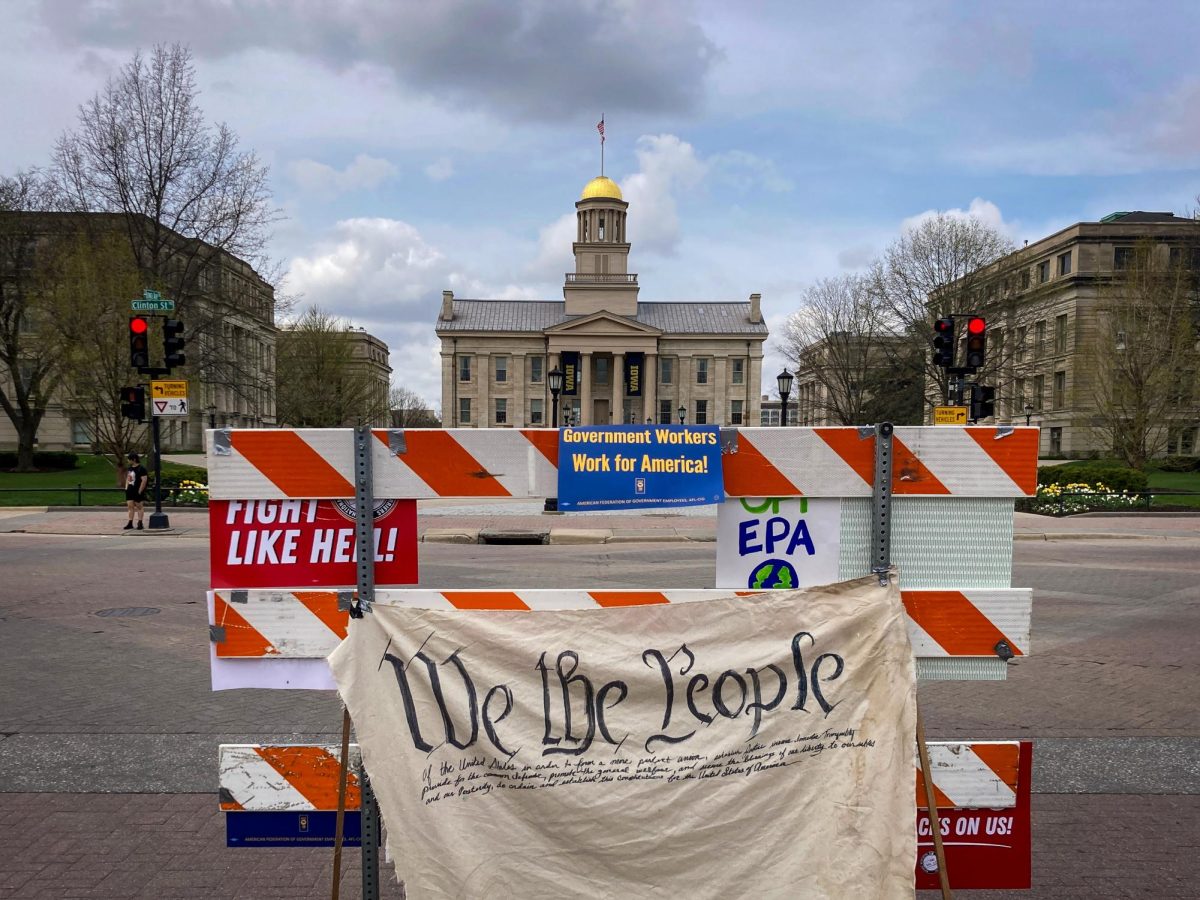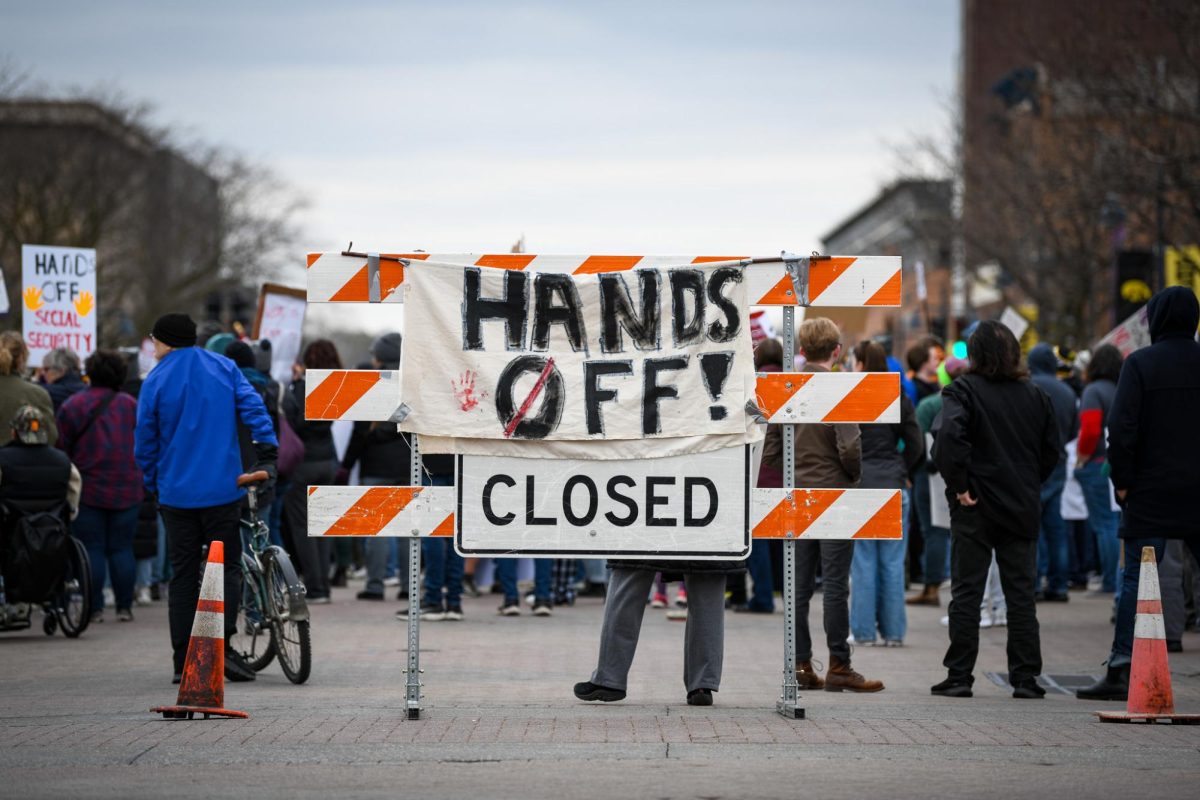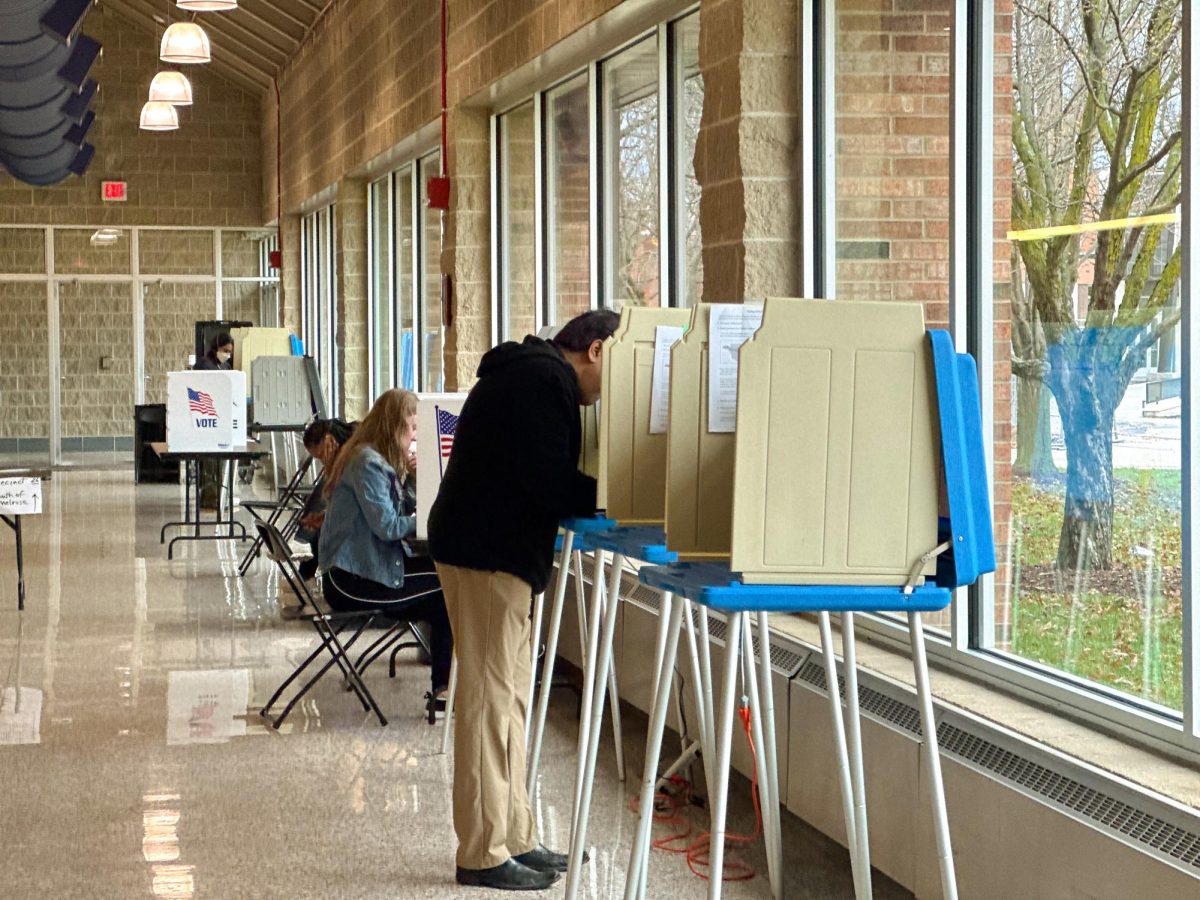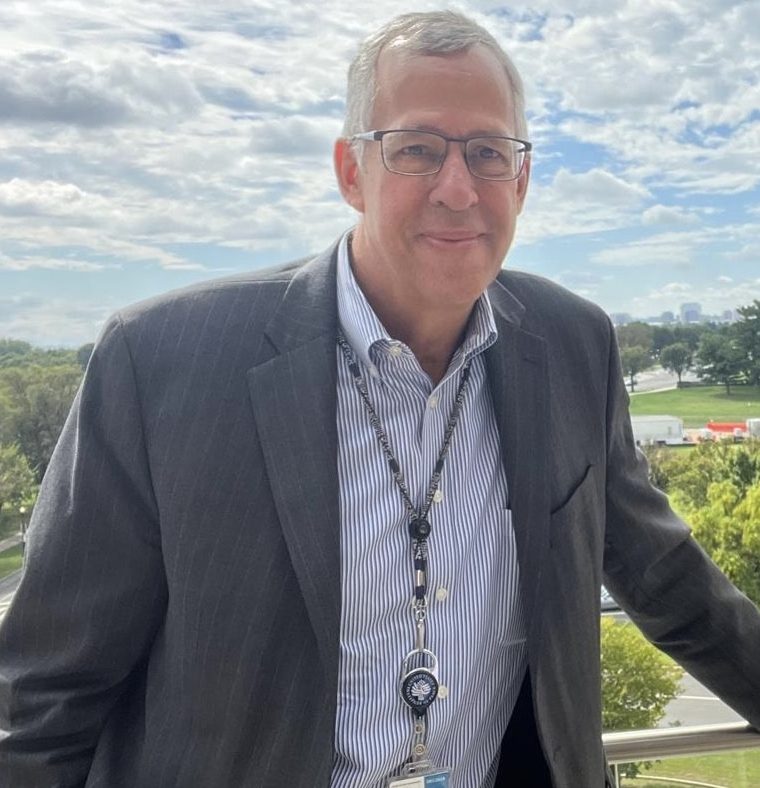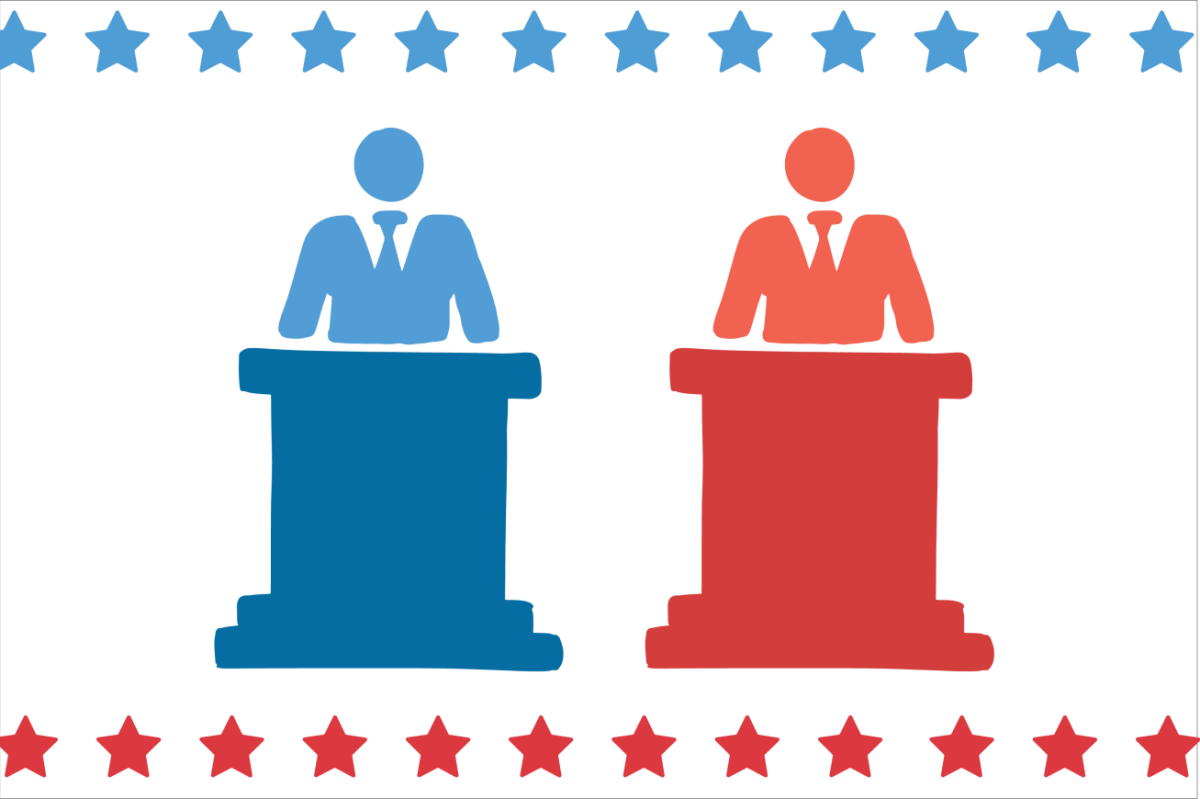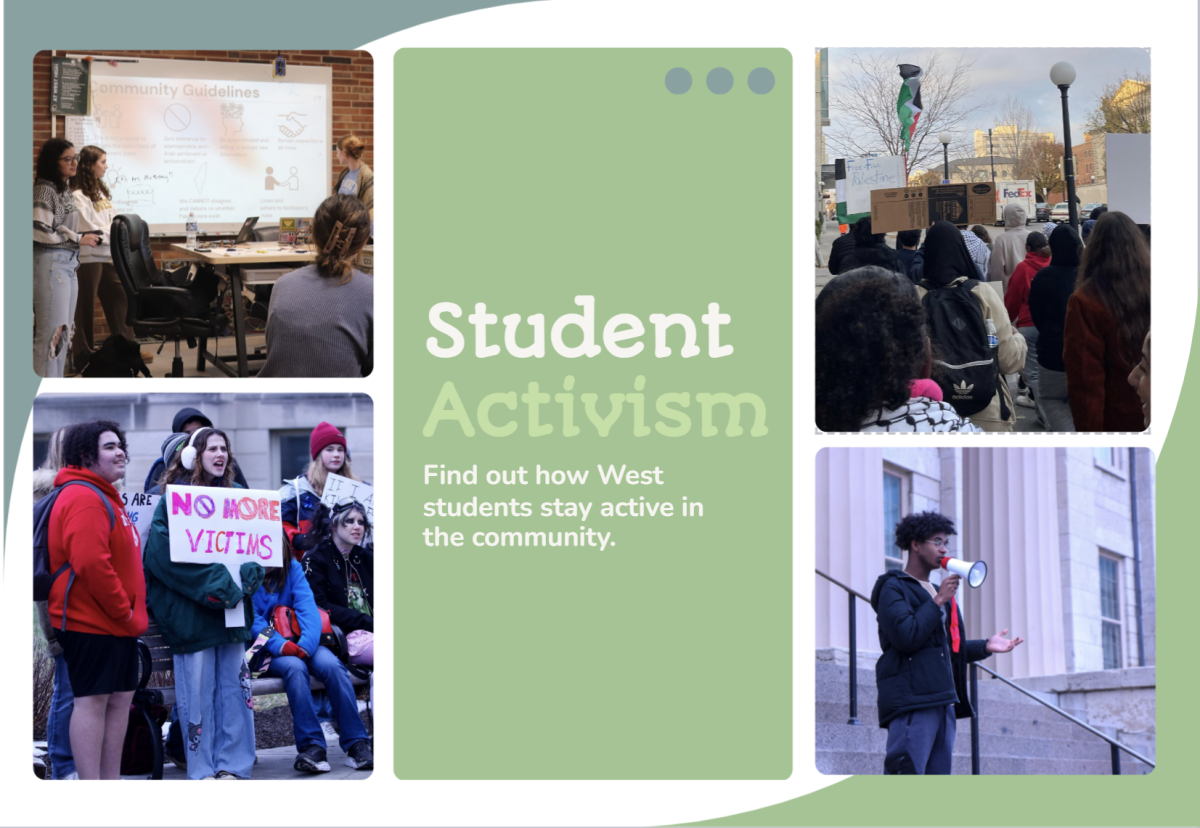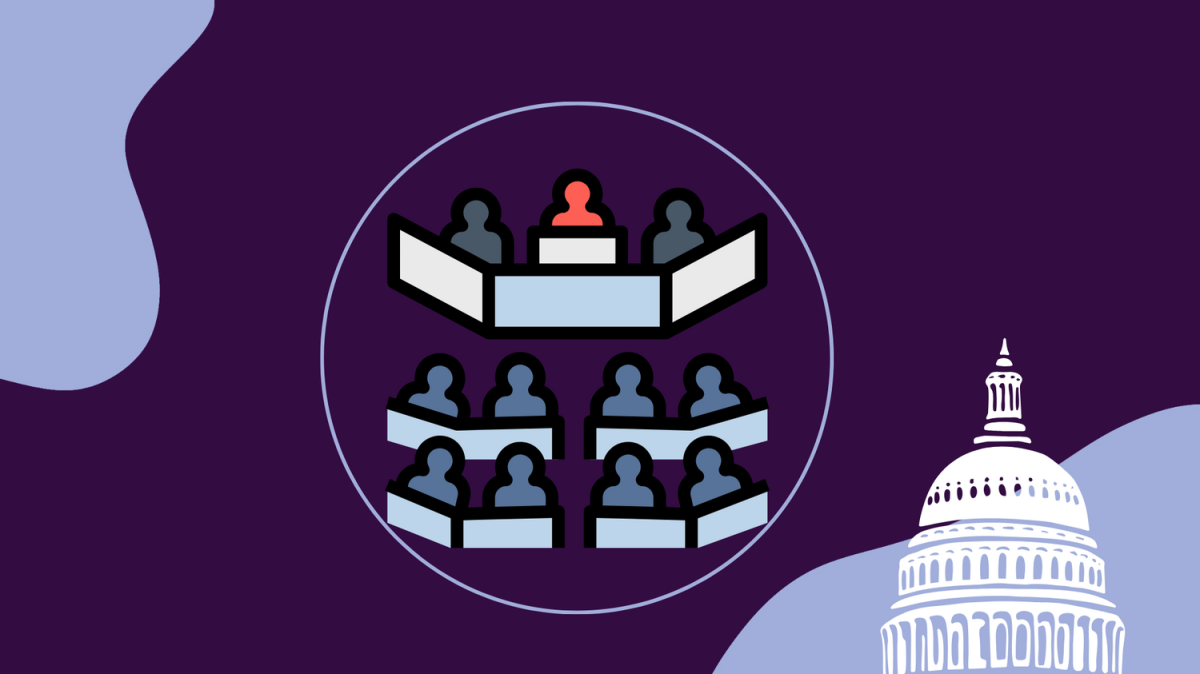A click of a button, and viewers file through a plethora of news channels within seconds; while some question former President Donald Trump’s immunity case, others debate current Vice President Kamala Harris’s past as an attorney general. Caught in a crossfire, novice voters receive an overwhelming amount of information regarding the upcoming presidential election.
The 2024 United States’ presidential election proves to be a tight race, with primaries revealing Trump as the Republican Party candidate and Harris as the Democratic Party candidate.
The Republican Party featured nominees Trump, Nikki Haley, Ron DeSantis and Vivek Ramaswamy during primaries — elections held by political parties to select candidates for the general election — with Trump winning the Republican presidential nomination. Later, he selected Ohio Sen. JD Vance as his running mate. Meanwhile, Biden dropped out of the race on July 21, leaving Harris as the Democratic candidate, who chose Minnesota Gov. Tim Walz as her running mate. In their first debate, Trump emphasized his priorities surrounding economic issues, while Harris displayed her beliefs about social programs.
The presidential election will be held on Nov. 5. Individual ballots will be sent to the state electoral college, where designated electors cast their votes to elect the president. Then, the president will be inaugurated, developing legislative strategies and policy implementation post-election.
Rep. David Jacoby, an Iowa legislator representing Johnson County, believes the significance of this presidential election lies in the policies and perspectives of each candidate. Jacoby, a Democrat, explains that Harris’s background as a biracial woman enables her to mobilize youth voters and other marginalized demographics.
“It’s a new energy, and it brings new discussion on policies. I’m excited for [Harris] because of what she brings to the table; I know she’s going to fight to keep our country safe [given] her experience as a senator and Vice President,” Jacoby said. “I trust her with leadership in the Middle East, immigration issues and, although the polling doesn’t show it yet, economic issues.”
Leading up to the later stages of the presidential election, Iowa plays a significant role on the national level, by kicking off the GOP presidential caucuses this past Jan. 15. This poses major political implications for Republican nominee hopefuls, leading to an active campaign race around Iowa, ultimately leading to a Trump win with 51% of votes.

Dr. Timothy Hagle is an associate professor of political science at the University of Iowa who specializes in American politics. Hagle explains Iowa’s significance in national politics, specifically Iowa caucuses.
“In years past, Iowa has been considered one of the swing states. We only have six electoral votes, but as a swing state, that could make a difference. … A lot of people outside of Iowa characterize us as a red state, meaning that we’re more of a Republican state, and the expectation is they’ll probably win here again,” Hagle said. “We had plenty of attention for the Republican [caucuses], and we’ll see how that works out going forward.”
Additionally, Jacoby explains that the presidential election and caucuses could have an impact on bills brought to the Iowa legislature.
“There are a lot of bills we deal with that are actually nationalist bills. We dealt with one that made sure illegal immigrants didn’t get college financial aid, and they aren’t eligible for it right now,” Jacoby said. “The discussions we have about [bills for] students in the dreamer population [and] for book banning are bills affect us at the state and local level, but they’re national bills — these aren’t ones handwritten by Iowa legislators. These are bills that are plagiarized by our state-level Republicans on a national basis.”
With news outlets circulating media ranging from policy proposals to insights on voter preference, recent trends reveal an uptake in ideological political polarization about candidates. Consequently, voters commonly feel as though they are subject to one extreme or another, with a study by the Public Religion Research Institute revealing that an estimated 90% of Americans believe the U.S. is divided over politics.
Although Americans maintain this negative outlook, statistics indicate the majority of voters remain moderate toward policy preferences. West government teacher Stacey Noble echoes this idea, noting a widespread misconception American voters hold regarding political moderacy.
“For a lot of people, even people who are getting elected, they feel like [Americans] are really far to the left or really far to the right,” Noble said. “A two-party system pushes us into one [side] or the other, [although] a lot of people are more in the middle.”
However, social media challenges moderacy and heightens political polarization, with American voters finding themselves emotionally conflicted between candidates. This phenomenon, also referred to as affective polarization, occurs when voters begin harboring strong negative feelings toward an alternative political party candidate. Hagle believes rapid digitalization has changed the way people perceive political issues.
“It’s different in our age, partly because of media in general [and] the internet age,” Hagle said. “These days, information goes [around] so quickly that [when] people look at it, they believe it and react accordingly, and then find out later that maybe it’s not true, or maybe there’s some context to this. [Regardless], people have this immediate, visceral reaction.”
Polarized voters — including younger demographics who use apps such as TikTok and X, formerly known as Twitter — often immerse themselves in political echo chambers, surrounding themselves with other like-minded individuals. Praneel Rastogi ’26, who self-identifies as moderately conservative, discusses the holistic factors involved when developing political ideas — also known as political socialization.
“Your family is the first factor of political socialization. Then, you start to get tuned into your school [environment], even though most of your school isn’t directly talking about politics,” Rastogi said. “In general, you start to take on the ideas that people around you have, especially if that’s considered the norm there.”
While a common misconception about youth voters is that they remain apathetic or politically disengaged, the opposite frequently rings true; young voters are often politically active. However, there are several barriers preventing voters from casting their ballot, ranging from inadequate transportation to lacking accommodations for disabilities.
Poll workers and organizers place their efforts in combating such issues. Interim Johnson County Auditor Erin Shane highlights how her office has been flexible with accommodating different needs.
“At every polling place, we have what’s called an ExpressVote machine, which is for [the] visually and hearing impaired [voters]. … All polling places in the county must meet our standards, which are mostly derived from the ADA, or American Disabilities Act. Ramps [and] doors can be opened by all,” Shane said. “We’re not having a polling place unless people can access it.”
However, voting obstacles extend beyond physical barriers. One of the primary obstacles for youth voters lies in remaining uninformed about voter registration, which involves submitting legal information to verify voting eligibility. Although there are advance and day-of registration options available, the lack of registration information decreases voter turnout.
Carrie Chen, a college mentor for New Voters — an organization mobilizing youth by providing resources and guidance to organize voting drives at a local level — hopes to increase youth voter turnout. Chen explains how there is often confusion amongst youth voters regarding voter registration.
“A lot of people don’t know the voter registration laws in their state. They don’t know they need a driver’s license [and] a social security number,” Chen said. “A lot of people aren’t necessarily informed, [which] sometimes seems super overwhelming.”
To lessen confusion surrounding voting registration and simplify the process, New Voters employs strategies alongside their student voting drives.
“[New Voters] has a teen voter [registration form] we send out to our schools, and it is pretty concise. You put in your state and whatever information you need to register. It takes a couple of minutes of your time,” Chen said. “We have a lot of these resources that take this super ambiguous, overwhelming idea of voter registration and put it in a little form.”
Additionally, Chen illustrates how New Voters is conducting scientific research to analyze voter trends and behavior.
“The New Voters Research Network does a lot of research into political behavior of high schoolers, and it’s another way for [young adults] to engage with each other and see what is important,” Chen said. “Some core issues that [youth voters are] concerned with include climate change, safety in schools and democracy. By researching those topics, we’re able to connect better with voters, and hopefully that’s a motivator for them to go out and engage.”
Furthermore, Noble explains how youth voters play a significant role in the greater scope of the voter-eligible population and emphasizes that youth can advocate for certain policies by showing up to the polls.
“There are so many ways to be involved, and if your age group were to actually show up at the polls, the numbers of eligible voters in the 18 to 29-year-old bracket would force the political world to listen to them,” Noble said.
Avanley Jones ’25, Gianna Liu ’25 and Anna Song ’25 held a voter registration drive Sept. 23-27 at West under Chen’s guidance at New Voters, as well as the League of Women Voters.
With youth-led initiatives to increase voter registration, a greater movement is emerging, highlighting the importance of civic engagement. Opportunities such as the State of Iowa Youth Advisory Council offer youth more insight into the political sphere through immersive discussions.
While voting is important, staying informed is also essential for youth voters. Hagle explains the importance of having access to accurate information and being involved in the community.
“If you’re 18, you want to participate in the process and take your civic responsibility seriously,” Hagle said. “It means doing the research, so you’re engaged as part of the community and the political body.”
Similar to Hagle’s perspective, a recent Tufts study forecasts greater youth involvement in the 2024 election, indicating that youth are beginning to spearhead political impact. Rastogi is one such example, following social media and news outlets to remain informed.
“[Staying informed] is important, but this is my first election that I’ve greatly paid attention to,” Rastogi said. “Different sources, free sources, left and right, everything in the middle — I try to get a wide variety of information.”
However, technology advances have tampered with information, leading to the emergence of false AI-generated depictions of political figures. This uptake in election interference from abroad warrants concerns regarding weaponized AI blurring reality. Consequently, Hagle believes it is essential for the public to remain cautious about their sources of information.
“You have to find ways to search for the truth, and the truth is an unknown quantity in some instances. Some people will say, ‘Each person has [their] own truth’ — that’s not really true,” Hagle said. “You certainly have your own viewpoints and beliefs, but there are going to be some things that are objectively true or false, and you can’t reject that, but sometimes you can’t find it either.”
To learn more about ideologies, youth may immerse themselves in interest groups, which unite people whose interests align, to engage with one another. Noble believes there are a multitude of opportunities for youth to become more politically active.
“[Students] are impacted by what’s going on, and a lot of times, you don’t have agency in why it’s going on,” Noble said. “Even before you can vote, there are interest groups [and] veins of political parties, and you can be involved in campaigns and issues to make your voice heard.”
Joining such groups may alter attitudes toward certain candidates. Jacoby elaborates on changes in voter sentiment following Harris’ entrance into the race.
“The biggest shift we’ve seen is an excitement from people. That’s key, because in 2022, there were 92,000 registered Democrats that did not even vote. They weren’t excited [or] involved enough, [and] didn’t feel like their vote counted, so they didn’t go to the polls in 2022,” Jacoby said. “The first level [of voter sentiment] is a nationwide excitement to vote. In my lifetime, this will be the year that the youth vote makes a huge difference.”
While voter sentiment may vary across individuals, Noble stresses the importance of all citizens remaining civically engaged.
“If we’re going to have a democracy and a democratic republic, we are the ones with the power,” Noble said. “If we won’t exercise that power [while] there are people who are willing to take that power, then the question becomes, ‘Are we a democracy?’”







